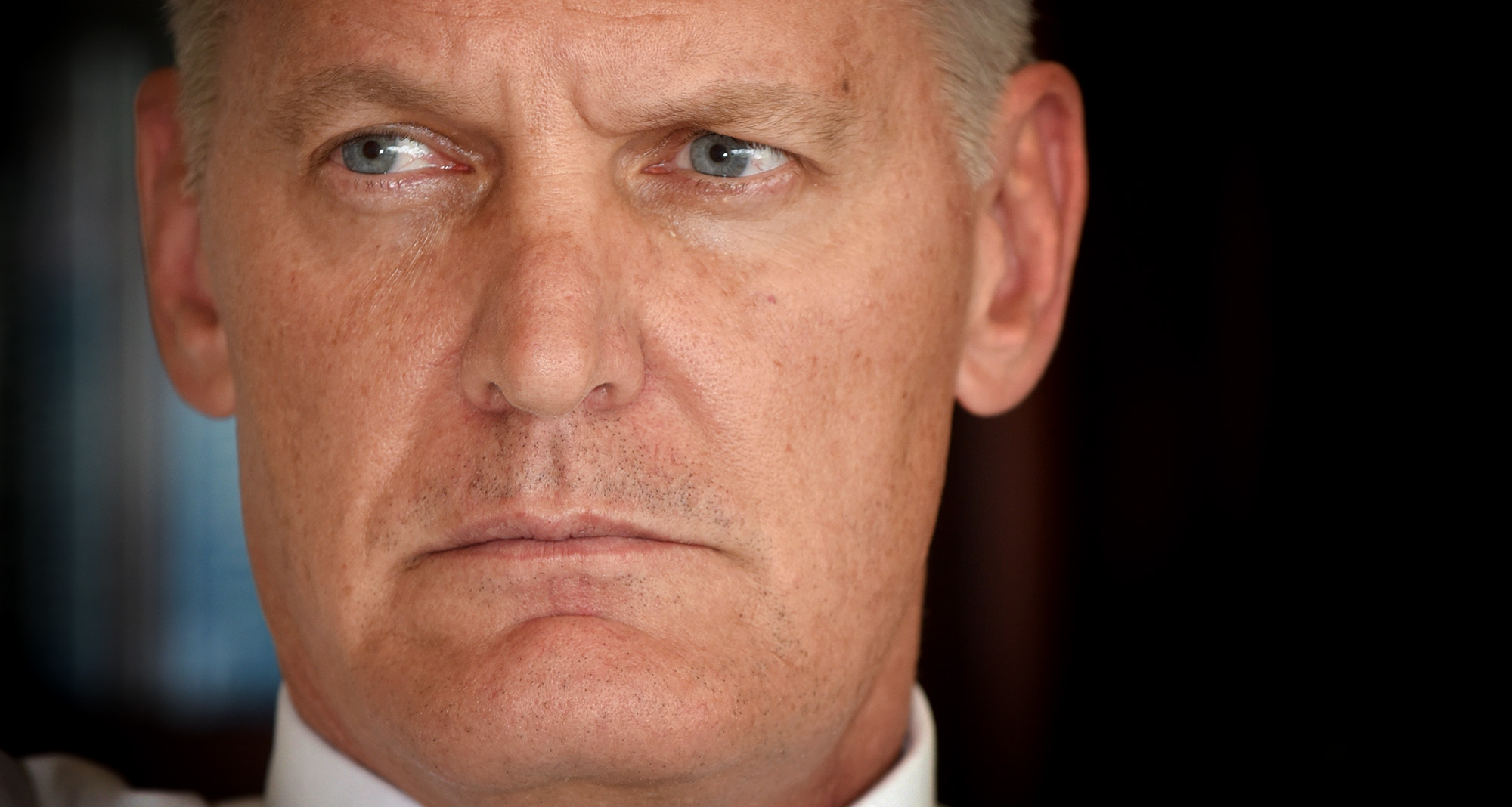The South African Police Service’s top brass has defended the cops who confused former Eskom CEO André de Ruyter’s cyanide poisoning charges with sinus problems. They did not know what cyanide was, they told the former energy utility’s boss.
De Ruyter suffered a poisoning attempt on 12 December 2022 and reported his case to the police, who sent two detective sergeants to interview him. In an interview with ENCA’s Annika Larsen on 22 February, he spilt the beans on the quality of the policing.
“A normal trained police officer or any other civilian will not have knowledge of scientific terms used to describe poison or poisonous substances,” said Brigadier Athenda Mathe.
She added: “It is only when the exhibits are collected and submitted to a forensic science lab for testing will our SAPS forensics analysts be able to describe the substance or chemical due to their qualification and training level.”
Read more in Daily Maverick: “25 years in the making – the real reasons we have rolling blackouts, according to De Ruyter”
In the interview, De Ruyter detailed what had happened: “I was approached to make a statement by two middle-aged detective sergeants, and with all due respect, if you are middle-aged and still a sergeant in the police, then you haven’t really shot the lights out, career-wise, and as we went through the statement, I mentioned that my cyanide levels were elevated, as indicated by the blood tests, and the detective sergeant then enquired whether I had been experiencing problems with my sinuses.
Visit Daily Maverick’s home page for more news, analysis and investigations
“I then asked whether they knew what cyanide was, and they said, no, no this is a technical medical term, and they don’t know anything about it. The doctor needs to explain it to them; they have never seen it before.
“Now either this is monumental incompetence by the police, or they are just not interested in investigating this,” he told Larsen in an interview that caused a crisis and saw him exit the utility a month before his agreed departure date.
Read more in Daily Maverick: “INTERVIEW — André de Ruyter says initial police investigators in poisoning case were ‘out of their depth’ ”
De Ruyter has been criticised by the ANC, the Central Energy Fund, Cabinet ministers and the SA Communist Party for the accusations of corruption he levelled against the governing party and certain Cabinet ministers.
De Ruyter took a hammering after the poisoning, he told Larsen.
‘Shaking badly, gasping for air’
“At that stage I was shaking badly, I was literally lying like this, and shaking, gasping for air, so the doctor was running up and down, and one of his colleagues called him over and said, ‘What’s wrong with that guy?’, and he said, ‘Well, we don’t know, we’re running tests’, and his colleague told him, ‘I’ve seen this before, this is cyanide poisoning…
“So, the doctor said, ‘Your cyanide levels are somewhat elevated; you must return for a further test’. I went back for a different test. The test took quite some time to complete for whatever reason – I think it was the festive season – and then it turned out that my cyanide levels were significantly elevated. Then when it became apparent that the story would break, I laid a charge of attempted murder with the police…
“I have subsequently consulted a specialist toxicologist, and the theory is that this was not a pure cyanide cocktail, but that it was a mixture of cyanide and sodium arsenite, which is a rat poison, and what the sodium arsenite apparently does is it masks the detectability of cyanide in a blood test, so if that is so, then the real level of cyanide that I had ingested was probably higher than indicated by the blood test.”
[embed]https://www.dailymaverick.co.za/article/2023-02-27-introducing-the-four-crime-cartels-that-have-brought-eskom-and-south-africa-to-their-knees/[/embed]
‘Clear lines of accountability’
The police have defended the two police officers who interviewed De Ruyter.
“The members that were dispatched to attend to this matter are attached to the Provincial Investigating Unit [and] only investigate high-profile cases and are highly trained and equipped to investigate sensitive, complex and high-profile criminal matters. The matter was thereafter referred to the DPCI [the Hawks] for further investigation,” said Mathe.
“Given the seriousness of the case to the CEO of Eskom, one would’ve expected a senior officer at the level of major-general or brigadier at the very least to be directly in charge and hands-on in overseeing the investigation,” said Gareth Newham, the head of justice and violence prevention at the Institute for Security Studies.
“There needs to be a clear line of accountability and seniority of the officer leading the investigation. If a senior officer had not engaged with De Ruyter following his reporting of the incident [no senior officer did], it would raise various questions, including who was in charge of this investigation and why that person did not meet with the CEO of a critical state-owned enterprise who had faced a possible assassination or at the very least the equivalent of assault with the intent to do grievous bodily harm.
“To ensure [the] confidence of such entities [and executives] that the state takes their security seriously and that the investigation was undertaken to the highest standards, the safety of SOE leaders, particularly those critical to the country’s economy, needs to be given priority attention – particularly when there is extensive evidence of widespread and systemic corruption.
“Any security incidents need to be directly managed by a highly experienced and senior police official. Unless the SAPS can factually dispute De Ruyter’s allegations against them, that they were out of their depth, it harms their reputation and an inquiry should be launched to ascertain what exactly happened,” said Newham.
“The SAPS does not assign dockets or cases based on rank but rather on expertise,” said Mathe. DM





